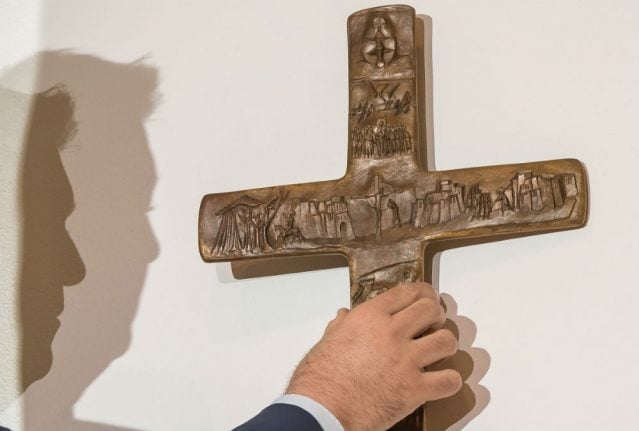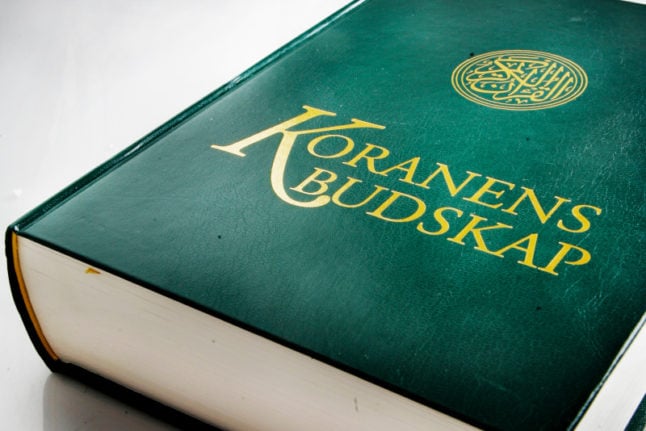Markus Söder, Bavaria's conservative state premier, had initiated the measure in April, saying “the cross is a fundamental symbol of our Bavarian identity and way of life”.
But the order sparked an outcry, with critics accusing Söder of politicizing a religious symbol as his CSU party battles to claw back voters who have turned to the far-right and Islamophobic AfD ahead of state election in October.
“Söder has misused the cross for an election manoeuvre,” the region's Social Democrat chief Natascha Kohnen told the Augsburger Allgemeine daily.
Söder was also widely mocked, including by the state premier of neighbouring Baden-Württemburg, Winfried Kretschmann, who said a photo of his Bavarian colleague holding the cross made him “think of a vampire film”.
FOR MEMBERS: Everything that changes in Germany in June 2018
But among the harshest condemnation was that from Cardinal Reinhard Marx, the president of the German Bishops' Conference, who warned Söder that “if the cross is viewed only as a cultural symbol, then it has not been understood.”
“Then the cross is being expropriated by the state,” said Marx in an interview with Süddeutsche daily, adding that it must not be used as a tool to exclude.
Amid the push-back, Söder's office had sought to tone down the decree, saying that while it was compulsory for buildings like police stations, courts or ministry offices, it was merely recommended for higher educational institutions, museums and theatres.
'Shaped by Christian values'
Defending his cross decree on Friday, Söder told Bavarian radio that “we are shaped by Christian values, with Christian holidays.”
The Protestant state premier, speaking from the Vatican where he had an audience with the Pope, stressed that the majority of Bavarians backed the move.
After scoring the worst result since 1949 in September elections, Söder's CSU — sister party of Chancellor Angela Merkel's CDU — has been desperately seeking to woo voters back from the far-right.
Campaigning on an anti-Islam platform, the AfD has capitalized on German fears of the arrival of more than a million asylum seekers, many from Muslim countries.
After becoming the biggest opposition force in parliament, the AfD is poised to enter Bavaria's state legislature.
The increasingly fragmented political landscape in Germany means that the CSU may for the first time lose its absolute majority in Bavaria, prompting it to take an increasingly hard line on issues related to immigration or religion.
Former Bavarian premier Horst Seehofer, now Germany's interior minister, has stated that “Islam is not part of Germany”, even though more than four million Muslims call Europe's biggest economy home.
For the Augsburger Allgemeine, the “CSU appears to be wooing AfD supporters by taking on its rhetoric on refugees, Islam and of course, the cross.”



 Please whitelist us to continue reading.
Please whitelist us to continue reading.
Member comments